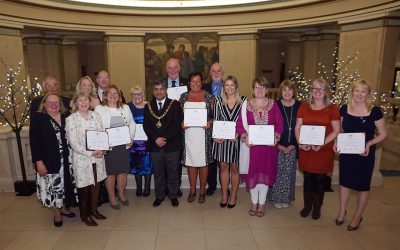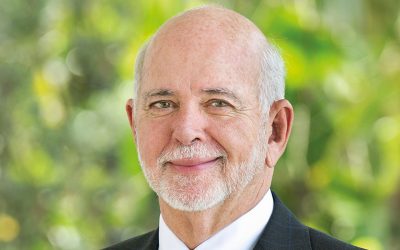The gauntlet has once again been thrown down to the Rotary movement to put tackling modern slavery at the forefront of its agenda.
Thirteen months ago, speaking at the Rotary conference in Torquay, Shaun Sawyer, the Chief Constable of Devon & Cornwall Police and who is the Association of Chief Police Officers’ national lead on modern slavery, said: “I don’t know how I can borrow the energy Rotarians have in the way you have taken on polio, but as and when you eradicate polio, may I ask you to consider human trafficking and slavery as your next endeavour?”
Chief Constable Sawyer returned to the Rotary platform in Nottingham this weekend as the keynote speaker at an anti-slavery symposium held at the Albert Hall.
“The fight against modern slavery is about making people feel uncomfortable. Opening their eyes as to what is going on. The joy of Rotary is that you don’t turn a blind eye.” – Chief Constable Shaun Sawyer QPM #RotaryConf2019 @RotaryGBI pic.twitter.com/fv8p41Pd3O
— Rotaract Wandsworth (@RotaractWands) May 11, 2019
He described the scale of modern slavery, with 40.3 million people enslaved globally, including an estimated 130,000 victims in the United Kingdom.
“Modern slavery touches every single one of us,” he said. “It is the second biggest economic crime in the world.
“Human slavery and trafficking is one of the ugliest things on this earth. Modern Slavery knows no limits, because human beings know no limits.”
The police chief said that it would require an iron-fist resolve to defeat modern slavery, or else it would ruin mankind, and he urged Rotary to be at the forefront of this stand.
The symposium was organised in collaboration with the University of Nottingham’s Rights Lab, which has a team of 100 academics looking to create long-term, robust and evidence-based strategies for abolition.
Mark Little from @RotaryGBI challenges Rotarians to take action. pic.twitter.com/gNtieRQv37
— Alison Gardner (@AlisonGardner12) May 11, 2019
Rotary in Great Britain & Ireland President, Debbie Hodge, has been a long-standing campaigner against modern slavery.
She told delegates at the symposium: “I was one of the first District Governors in the world to say that Rotary cannot stand by while people in the 20th and 21st century are enslaved.”
A number of speakers took to the platform in Nottingham for an event which ran alongside the Rotary Showcase, including Minh Dang from the Survivor Alliance, and Tim Nelson, International Development Officer for the organisation Hope for Justice.
About to present @RotaryGBI Modern Slavery Sympoisum and speak about @empwrsurvivors
— Dr. Minh Watson-Dang (@minhspeakstruth) May 11, 2019
In a rallying call to Rotary, Tim called on the organisation to be part of a strategic plan to rid the world of slavery.
He said: “I know that Rotary can pull together the people who count, that you can create a grass roots movement in this country and every country in the world.
“For 114 years, the Rotary movement has been known for so many good things. Would it not be amazing if Rotary, in your life time and in my lifetime, could be a part of ending slavery for good?”
Tim pointed to the work which Rotary does in creating sustainable communities internationally.
Within your community tonight there will be people who are going to cry themselves to sleep, hoping and praying that someone will do something about this.”
“I know you can make a difference on this issue,” he said.
“If you can capture that vision, you can start to be part of a change that needs to happen.”
He acknowledged the scale of modern slavery was massive, but as a movement, he believed it was not impossible to crack.
What a setting for National Rotary Action Group Against Slavery in Nottingham. @Hopeforjustice @policingslavery @AlisonGardner12 @CCShaunSawyer and others spreading the word. @UK_Glaa pic.twitter.com/PIsshkljFe
— Paul Elms (@PFE1204) May 11, 2019
Quoting the words of the boxer Muhammad Ali, he said: “Impossible is just a big word thrown around by small men who find it easier to live in the world they’ve been given than to explore the power they have to change it. Impossible is not a fact. It’s an opinion. Impossible is not a declaration. It’s a dare. Impossible is potential. Impossible is temporary. Impossible is nothing.
“Maybe if you don’t do something about this issue, more people will be held in slavery.
“Maybe if you don’t do anything about this, then within your community tonight there will be people who are going to cry themselves to sleep, hoping and praying that someone will do something about this.
“Maybe you are their answer. Maybe you, collectively, could be the catalyst to a bigger change.
“Can I encourage you to be the Rotarian movement you are, to make a bigger difference in this world?”
More on modern slavery
Delve deeper into the issue of modern slavery and human trafficking with these articles from the April-May edition of Rotary magazine.










